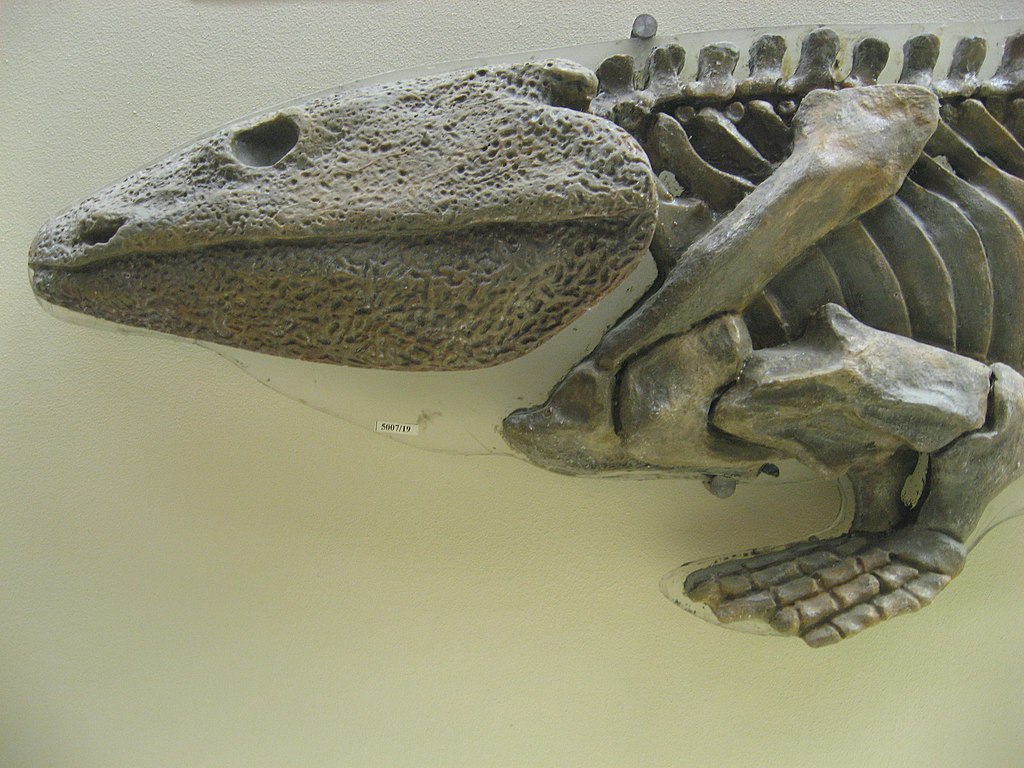
From Carolyn Gramling at ScienceNews:
Earth’s earliest land-walking vertebrates didn’t paddle about in freshwater lakes or rivers. Instead, these four-footed creatures, which appeared about 375 million years ago, lived in the brackish waters of an estuary or delta, researchers report online May 30 in Nature.

Early tetrapods, such as Ichthyostega and Acanthostega, lived an amphibious existence between land and sea: They had feet, but also gills and tails made for swimming.
…
An ability to tolerate different salinity environments could have helped tetrapods — a group that includes today’s amphibians, reptiles and mammals — survive a mass extinction of ocean-dwellers that occurred by the end of the Devonian Period about 359 million years ago, the researchers say. More.
Some life forms can do that today but it requires a sophisticated system. How did Ichthyostega and Acanthostega acquire it?
See also: Trout adapted from salt to fresh water in only 120 years? Well, not exactly. In short, in their original habitat, the trout were spawned in fresh water, lived in salt water, and – as adults – returned to fresh water to spawn. But having no salt water available in the new habitat, they have adapted to lifelong freshwater living. It’s a good find but these fish were already capable of living in both environments. It’s not as if they moved from lifelong salt water to lifelong fresh water.
and
Lizards and snakes backdated to Permian era, lizards lost or changed limbs many times. Instead of inventing Darwinian just-so stories about “natural selection,” paleontologists might want to check for a biochemistry that promotes much greater plasticity of limb development in such vertebrates than we find in, say, birds or mammals. The question is not how it might be an advantage but how it can actually happen.